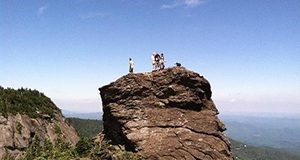Abstract
Trails represent a landowner’s main routes for recreational activities such as walking, sightseeing, horseback riding, and bicycling. They provide access to, and through, forest land and other natural resources. They play an important role in protecting and preserving soil, water, and wild plants and animals. They can be the source of endless hours of enjoyment and relaxation. This 13-page fact sheet will help you plan your trails wisely and construct them carefully so that you and your guests can enjoy them to the fullest. Written by Alan Long, Anne Todd-Bockarie, Taylor Stein, Keith Bettcher, and Chris Demers, and published by the School of Forest Resources and Conservation, August 2016.
References
Larsen, D.M., and W.R. Miles. 1970. Nature Trails. Agricultural Extension Service, Univ. Of Minn. Extension Bulletin #368. 15 p.
Marion, J.L., and Y.F. Leung. 2004. "Environmentally Sustainable Trail Management." IN: Buckley, R. (ed.) Environmental Impacts of Ecotourism. CAB International. Walingford, UK. Pp. 229-243. https://doi.org/10.1079/9780851998107.0229
National Trails Training Partnership. 2015. Resources and Library. http://www.americantrails.org/resources/index.html.
Proudman, R.D., and R. Rajala. 2008. Appalachian Mountain Club Field Guide to Trail Building and Maintenance, 2nd Ed. Appalachian Mountain Club. Boston. 272 p.
Tennessee Recreation Education Services Division, Greenways and Trails Program. 2007. Pathways to Trail Building. Tennessee Dept. of Environment and Conservation. 40 p.
U. S. D. A. Forest Service. 2008. Trails Management Handbook. Forest service Handbook FSH 2309.18.
U.S.D.I. National Park Service. 1983. National Park Service Trails Management Handbook. U. S Dept. Interior. 53 p.

